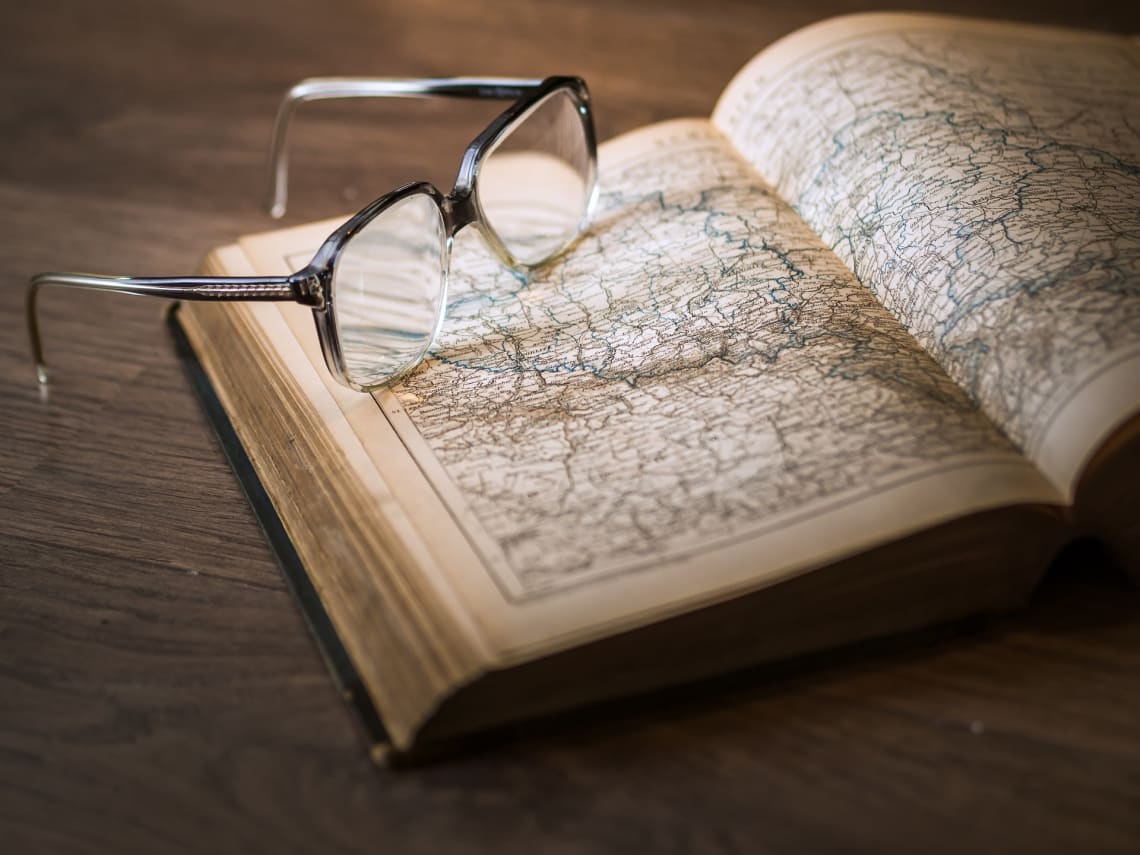
- How about winning a flight ticket worth up to US$500?
- Become a member by January 31st and get a chance to win!
What are the best ways to get in touch with local culture while traveling? Tips on how to immerse yourself for an authentic experience, plus how to avoid common mistakes.
7min

Every country has its own set of customs and traditions that are very important to daily life. To really appreciate how locals live, do research before your trip.
Read up on how people greet each other, how they say hello, and how they feel about eye contact. Check whether people remove their shoes inside and whether they wear certain types of clothing. Some cultures are very sensitive with their customs, and some tradition-minded locals may take offense to a tourist disregarding or even disrespecting their customs.
The more awareness you have of how people act and carry themselves in a particular country, the more you will blend in with locals, and thus have a more authentic experience of the country's natural rhythm and culture.
Locals will appreciate your efforts, and respect you more for being willing to immerse into their culture.
Truly learning a new language is incredibly difficult, but trying to pick up a few useful words is doable. Though English is a widely-spoken language, always assume that some locals might not speak English.
Learn how to say simple words like "hello", "please" and "thank you." It may even be helpful to learn how to say "I don't speak (local language)", or "do you speak English?" to help navigate certain situations. Saying "hi, how are you" in the local language may not seem like much, but any effort to speak in the native language of an area will be appreciated.
Tourist attractions are usually flooded with people for a reason: most of them are stunning and have a significant place in the history and culture of a country. But — you can learn even more about a local culture by finding the places that are special to the locals and unknown by the tourists!
Speaking the local language can come in handy here, as you can ask locals for ideas of cool places to go. When you venture away from tourist crowds and hotspots, you discover architecture and hidden beauty that reveals so much more to you about the country you're visiting. This gives you a more unique experience and is usually way more exciting than just snapping photos of the typical well-known spots.
Food is a massive part of a culture. When you eat and drink what the locals do, you are actively immersing yourself in that culture through your senses and your tastebuds. Think of countries like Italy, Japan, and India, which are internationally famous for their local cuisine.
Traveling to a particular country and eating its incredible food "at the source" is such an amazing way to have a truly authentic experience. The same goes for drinks. Not many people can say they have tasted tea straight from the mountains of China, or tequila freshly made in Mexico. Food and drink reveal so much about a culture, so be sure to try the local dishes while traveling instead of just sticking to what you usually eat at home.

There's absolutely no use in traveling to a foreign country and staying in a hotel all day. Get outdoors and explore the land!
If you're traveling somewhere in winter, go skiing in the mountains and ice-skating on the lakes. If it's summer, try surfing, paddle-boarding, kayaking, or swimming in the waves. Hike through the forest, camp in the desert, picnic in the parks and gardens. Seek out waterfalls and caves, and don't be afraid to get your hands dirty.
The landscape contributes hugely to the lifestyle of a place, and locals tend to pass the time enjoying activities in the land around them. Instead of just looking at the surrounding nature and taking a cool photo, jump right in and experience the earth how the local residents would.

Instead of hopping in a convenient taxi, join locals on trains, metros, buses, and trams. Not only does this habit save money, it helps you immerse yourself in the everyday life of a country.
Public transport is perfect for people-watching. Enjoy the ride and observe how the people around you live. On a local bus, you will see people of all ages going about their day, and observing them interact can give you great insight into the cultural atmosphere and attitude. You may even blend in with the crowd and feel like more of a local yourself, which is more rewarding than being chauffeured around in an expensive taxi or Uber anyways!
Art, in every shape or form, is essential to understanding a local culture. People express so much emotion about the human experience through art, so you can really understand the vibe of a place through observing the art.
Observe the visual art all around you, such as paintings and sculptures in museums or architecture and murals in the streets. Go dancing in a local club and listen to live music. Go to local concerts, operas, comedy shows, plays, musicals, and poetry readings. Read books and watch movies about the country you're in. Engage with the culture through artistic means. You will learn so much about the history and current lifestyle of a country with this method of cultural immersion.
This last tip for immersing yourself in a country's local culture takes things a step further than all the previous points. The previous seven tips mentioned can easily be done if you're just visiting a country for a few days. However, if you want a deeper, richer cultural experience and are staying somewhere for a few weeks or more, try to work with or for a local.
Whether it's a paid job, volunteer opportunity, or a simple work exchange, working abroad will benefit you financially, educationally, and spiritually. Getting to work somewhere really throws you right in with the locals, as every local person needs to work to survive. Seeing how local bosses treat you as an employee and peer, rather than as a tourist, allows you to create a deeper bond and connection with them, thus bringing you closer to the local culture.

What NOT to do when exploring a different culture
Many countries are portrayed mostly through media-based stereotypes and preconceived ideas of what their culture looks like. These stereotypes are usually based on news outlets, movies, books, TV shows, magazines, or any other type of pop culture. Regardless of how stereotypes form, they are usually vague generalizations of a culture that don't apply to many of its people, and more often than not, they can be offensive.
To truly get an accurate idea of a culture, actually spend some time in that country, interacting with its people and getting to know them first-hand.
You may find that the locals are nothing like the popular stereotypes, or that there's much more to them than just what the media shows. If you travel with an open mind and a non-judgmental attitude, you are guaranteed to learn more about a culture than what a stereotype shows.
While traveling, it's easy to feel overwhelmed and close yourself off. If you're traveling alone and don't speak the language, interacting with strangers can be intimidating, and you may find yourself hiding in your hotel room or shying away from conversations. Even if you're traveling with friends, you may find yourself only interacting with them and neglecting to use the local language or meet new people.
Traveling can be difficult, but you'll have a more rewarding experience if you put yourself out there and be brave.
Don't be afraid to make language mistakes or use hand signals to communicate. Don't be afraid to stay in a crowded hostel dorm room with other travelers instead of closing yourself off in a private room.
Opening up to others and acting without fear makes you a more adventurous traveler, and therefore a more engaged world citizen.
Cell phones and data are like handicaps these days, especially while traveling. Everything you need is right there in your hand, and this can make you very lazy.
Instead of just staring at your phone as the GPS navigates you to your destination, try using an old-school paper map and your own eyes and logic to find your way. This allows you to really pay attention to your environment; plus, you'll find more hidden gems in the streets when you're actually looking around at your surroundings instead of at your phone.
Instead of choosing a restaurant by reading reviews on the internet, just ask a local where their favorite restaurant is. Chances are they know the best, most authentic places to eat at better than anyone. Instead of relying on apps like Duolingo to learn a language, actually practice with a local and get real-life experience from a person and not a machine.
Phones can really hinder cultural immersion when used excessively, so try to only use them when absolutely necessary.

Too many people travel just to check places off a bucket list. Having a bucket list of destinations you'd love to visit is awesome for setting goals and brainstorming travel ideas. But if you zip through them all quickly without taking time to experience life at each destination, you wont get an in-depth idea of the culture.
Visiting Paris for a day and seeing the Eiffel Tower just so you can cross France off your bucket list isn't real cultural immersion. But spending a few weeks in France, meeting locals, practicing some French, and exploring the countryside is a much more enriching experience in France.
Of course, visiting a country for a day is sometimes better than not going at all. But, if your bank account and time schedule allows, try and spend more time actually immersing yourself in the culture rather than just speeding through tons of places for the sake of an Instagram photo.

Write here your questions and greetings to the author
Omary
Dec 20, 2023
Nice working and good program